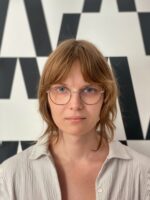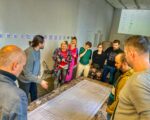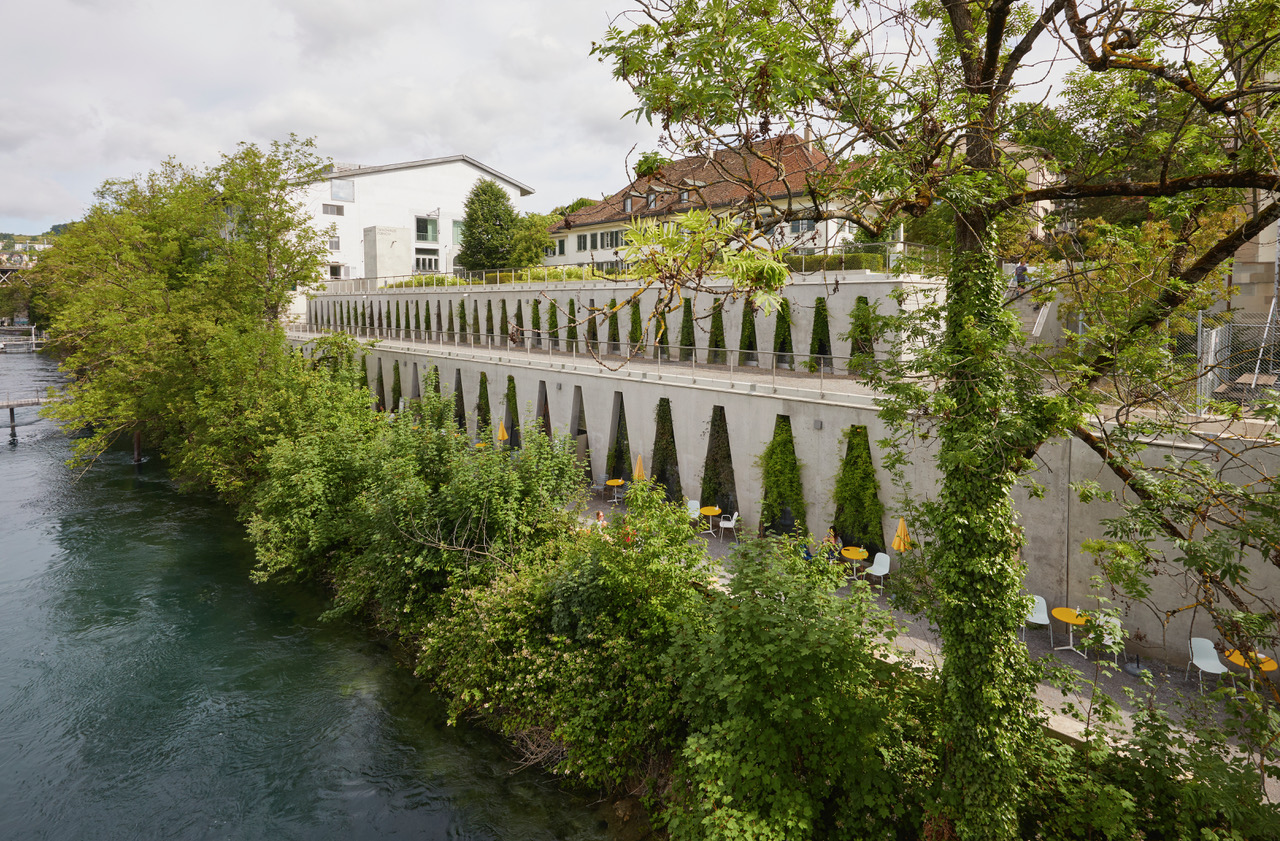Meeting with Catja Loepfe, artistic and managing director of Tanzhaus Zürich
From movement to institution
The Tanzhaus Zürich (TZ) centre was founded in 1996 as a result of bottom-up pressure from independent communities who wanted a place that would provide the right conditions for choreographic and production work as well as for the presentation of dance projects. Such an institution did not exist in Zürich before. The aim of the TZ is to support the local dance community by responding to the individual needs of artists, including the development of grant applications, networking and the provision of workspace.
Architecture – Opportunities and limitations
For seven years after the fire that destroyed the old premises of the Zürich Dance Centre in 2012, Tanzhaus Zürich had to work with only a stage and a studio provided by the city, which also supported the organisation financially with rent. At the time, TZ was housed in a ballet studio far from the city centre, but the space was allocated to artists, not staff. The local community saw the burning down of the old TZ building as an opportunity to build new premises more suited to the needs of choreographic work. The Zürich City Council organised an open call for architects, which culminated in the selection of the winning design for the new building by Estudio Barozzi Veiga from Barcelona.
Following the competition, TZ staff met weekly with the design team to discuss the work, with the council and the future manager of the dance centre, who acted as a liaison between the authorities and the design team. These meetings were particularly important during the construction phase, as they allowed the TZ staff to voice their concerns and specific needs. It was crucial for the TZ team to make the space accessible and inclusive, with no architectural barriers and clear signage.
From 2019, TZ has been housede housed in a completely new building. Like the Pavilion, the Tanzhaus is situated on the riverbank. The proximity to the water is a crucial factor in the operation of TZ, and the open-air stages increase the visibility of choreography in the urban space.
Functioning in an ecosystem
The funding and therefore the functioning of the Tanzhaus has changed in recent years. In the past, artists who wanted to work there had to apply for grants from the city, as the Tanzhous had no production budget of its own. In effect, the city of Zürich became the curator of the dance centre. Today, funds are allocated directly to TZ and the dance centre’s staff manages their distribution. This has given the artists a sense of stability and the TZ team greater freedom to develop a long-term programme for the institution.
This way of programming was called the dramaturgy pool, which refers to a team of Catją Loepfe and four other dramaturgs. Their job is to read and evaluate the artists’ applications, which ensures the transparency and reliability of the selection process. The winner, either an individual artist or an ensemble, will be supported throughout the production process by one of the dramaturges, who will advise on promotion and funding, and help find rehearsal spaces if they are not available in the Tanzhaus building at a given time.
The Tanzhaus team say that supporting artists is one of the most important aims of the institution. A two-week residency programme, held twice a year, is an opportunity for artists to develop new skills, and the process is not focused on the production of a specific residency output, but on the resident sharing the impact of their work with the public in the form of a conversation. The centre also offers free use of one of its studios to anyone who applies.
As well as supporting the local community, TZ is a member of several organisations, including the European Dancehouse Network and Aerowaves. This facilitates the exchange of knowledge and experience, provides insight into developments in dance markets in other countries, particularly in terms of sustainability, diversity and inclusion, and allows the various members to learn about good practice elsewhere.






